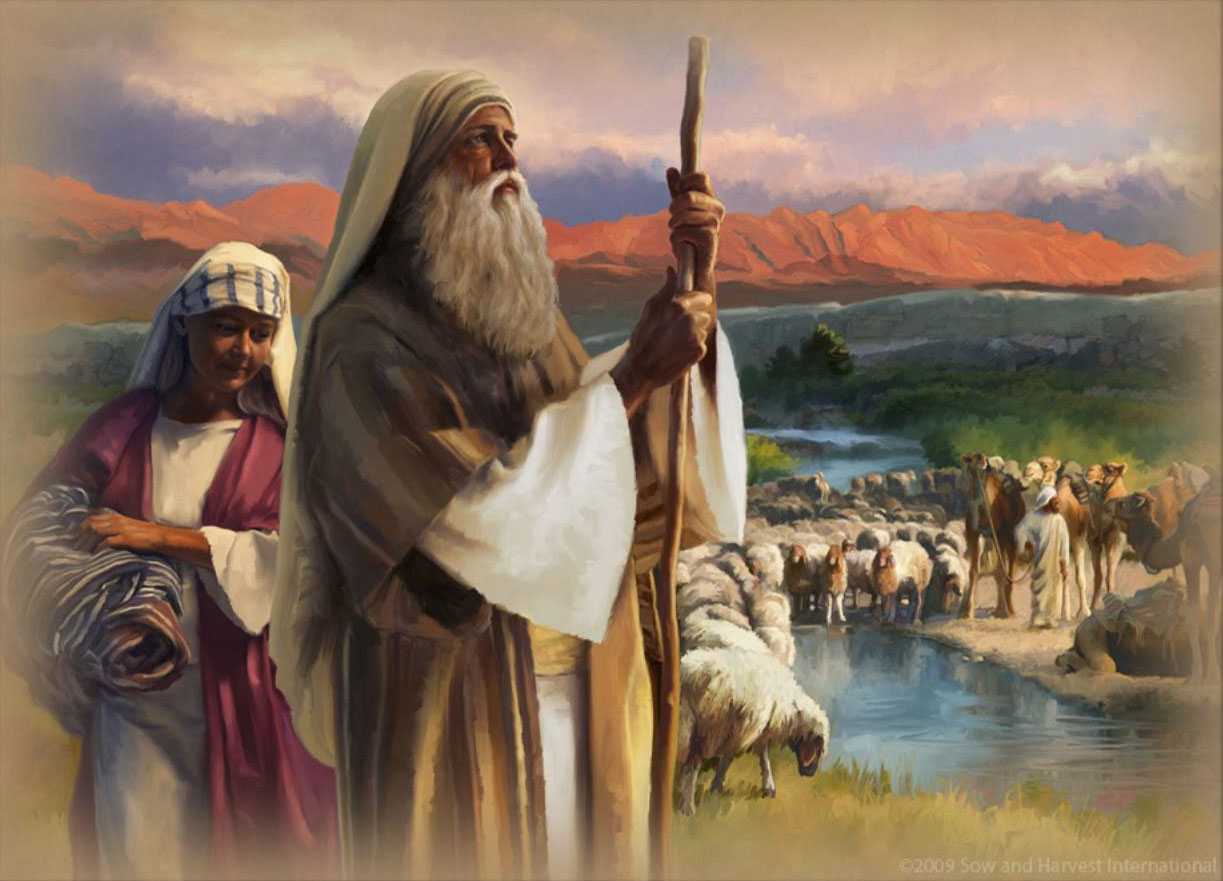Reflections From God's Story of Hopeनमूना

Promises to Abram
Sometime after the tower of Babel incident, God called Abram to be the father of a great nation through which all families of the earth would receive a special blessing.

After Babel, man continued to degrade (or de-God) God to such an extent that before long people were worshiping animals and inanimate objects such as the sun, moon, and stars. Mesopotamia (west of modern day Iran, in eastern Turkey) had two significant centers of moon worship: Ur and Haran. Ur, located near where the Euphrates and Tigris flow into the Persian Gulf, was a highly cultured and influential city with a large ziggurat (Babel-like tower) dominating its landscape.
Terah, a moon-worshiper living in Ur, had three sons: Abram, Nahor, and Haran. They each married and stayed close to home. Haran’s wife had a son whom they named Lot. How pleased Terah must have been to have a grandson! But Sarai, Abram’s wife, was unable to have children. Then a worse tragedy struck: Haran died, leaving his son without a father. Terah took his grandson, Lot, into his home.
Then one day, Terah decided to leave Ur. He took his son Abram, his daughter-in-law Sarai, and his grandson Lot with him as he traveled north along the river to Haran before he settled down. That’s where Terah died, a dedicated old moon-worshiper.
How long would this continue? Would man never turn back to the living God who created him?
God initiated contact with a single man. God spoke to Abram! “I want you to leave your country, your people, and your family and go to a land I will show you. I will make you a great nation, and I will bless you; I will make you famous and through you I’ll bless others. Yes, I will bless anyone who blesses you and curse anyone who curses you. Yet all families of the earth will be blessed through you.”
So Abram did as God said; he left. At age 75, he took his wife, his nephew Lot, and all the possessions and people he had accumulated in Haran and went down to Canaan.
Abram arrived in Shechem, where the Canaanites lived. These people worshiped a pantheon of gods, some human in form, others half-human, half-animal, almost all related to fertility. There God appeared to Abram again. “To your children I will give this land.” So Abram built an altar to God right there to show his allegiance to the true and living God despite the fact his own wife was still infertile.
Then Abram moved farther south to a place later called Bethel. He settled there, built another altar to God, and worshiped Him.
Abram, his father, and his people were moon-worshipers. In Canaan, people were worshiping all kinds of false gods. Yet once again God graciously communicated to someone undeserving. Abram is now a light of hope in a dark world; a lone man following the true God in a world of counterfeit gods.
यस योजनाको बारेमा

Listen to professional recordings of all 100 narratives from the book, Reflections from God's Story of Hope—an audio journey (6½ hours total) through the Bible's Big Story of redemption, from Genesis through Revelation. The audio narratives interweave music, sound effects, and dramatic voices from 20 professional voice actors.
More

